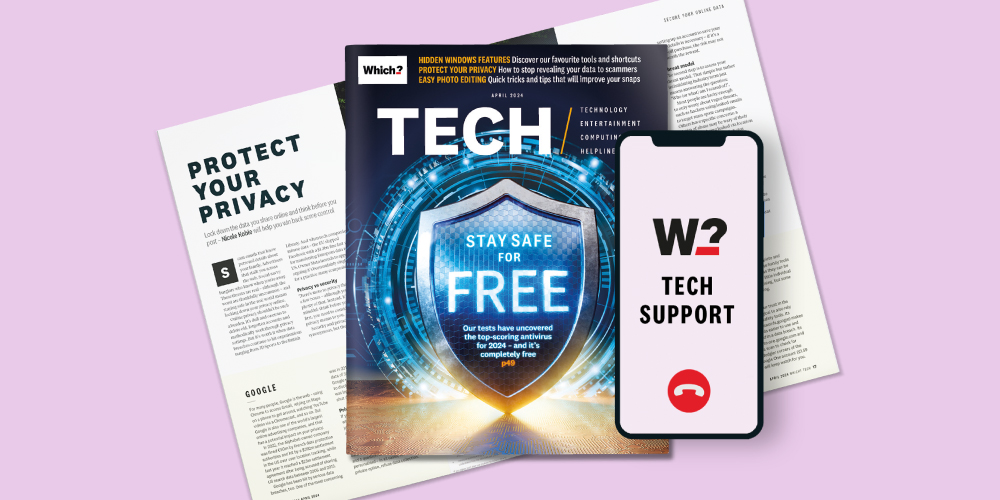
Get Which? Tech Support for £49 a year or £4.99 a month
Contact our experts for unlimited 1-to-1 support by phone, email or remote fix.
Find out moreBy clicking a retailer link you consent to third-party cookies that track your onward journey. If you make a purchase, Which? will receive an affiliate commission, which supports our mission to be the UK's consumer champion.

Heading to university is an expensive time. There are furnishings, textbooks - and the occasional beverage - that require heavy investment. And don't forget your top study buddy when doing your pre-uni shopping: a good laptop.
You can get yourself a decent laptop for under £400, provided you know what to look for. Check our five top tips below to find out how much you should expect to spend for the right laptop for your course and how you can minimise your outgoings.
Alternatively, head over to our guide on the best laptops for students to find out which laptops are - and aren't - worth your money.
News, deals and stuff the manuals don't tell you. Sign up for our Tech newsletter, it's free monthly

If you just need a laptop for typing up notes and perhaps checking a few emails, you likely won't need to spend more than £400.
But if you know your course will require a lot of online research, such as opening lots of PDF journals and academic websites, it's better to stretch your budget for something a little more powerful.
Here's what you'll typically get at different price points, plus examples of popular laptops that hit each spec, but you'll have to Log in to Which? to read our full reviews and find out how they did in our tests.
Intel Pentium, Core i3, AMD Ryzen 3 and 4GB Ram; fast enough for web browsing, multitasking and research work. Aim for a Full HD screen and a solid-state drive (SSD) for storage, if you can.
Intel Core i5, i7, AMD Ryzen 5, 7 and 8GB of Ram. Laptops with these specs should be ideal for photo editing and some light video work. Look for a thin and light design, a Full HD screen and an SSD to get the most for your money
As above, but in increasingly high-end designs. Look for great battery life and gaming performance on bigger devices.
Some stunning designs, great screens and good speakers. High-end laptops will suit more intensive tasks, such as video editing or playing games.
Take a look at the best laptops from our testing, with detailed buying advice to help you choose the perfect model for you

Apple's student discounts might be the best-known, but several other big computing brands offer some modest discounts to students with a .ac.uk email address, in partnership with companies such as Student Beans and Unidays.
Discounts include:

Before you click through to buy directly from a laptop brand, check that you can't get a better deal on your chosen laptop from a high street retailer such as John Lewis, Argos or Currys PC World.
Brands, such as Apple, will usually discount older generations of laptops when a new one is released. Keep an eye out for newer models on sale - you might just catch yourself a bargain buying an older (though still top-notch) model.
You might be tempted to wait until the Black Friday and winter sales kick in to buy a new laptop, but be warned that you might not always be getting the best price. Last year, we found that 98% of Black Friday 'deals' aren’t the cheapest price of the year, so you'll have to be vigilant in scoping out the true bargains.
Not sure on the best laptop for you? See our guide to help you choose: Chromebook vs MacBook vs Windows laptops.

If you have an old but working laptop, you may find you can get a big discount by trading it in.
Currys offers a trade-in discount throughout most of the year, for example - you can check out the Currys trade-in website. The trade-in value you'll get for a fully working laptop may not be much as you'd get if you just sold your device on eBay, but you may think it's less hassle.
Whether you sell or trade-in your old laptop, don't forget to wipe all your data off it first - see our guide on how to prepare your computer for recycling - and ensure the device meets any retailer terms and conditions on trade-ins.

If you're confident you know what you want (and have looked through our wide selection of laptop reviews), you could save hundreds of pounds by buying a second-hand or refurbished laptop.
By way of an example, you can typically save at least £300 on a MacBook Pro that's been refurbished (or is simply an unused, open-box returned product), and usually even more if it's a higher-spec model.
You can see a range of refurbished MacBook options directly from Apple and save anywhere from £200 to over £500.
There are, inevitably, advantages and disadvantages to this approach.
Read our guide on how to buy a second-hand or refurbished laptop to help decide whether this is the right option for you.

Contact our experts for unlimited 1-to-1 support by phone, email or remote fix.
Find out more